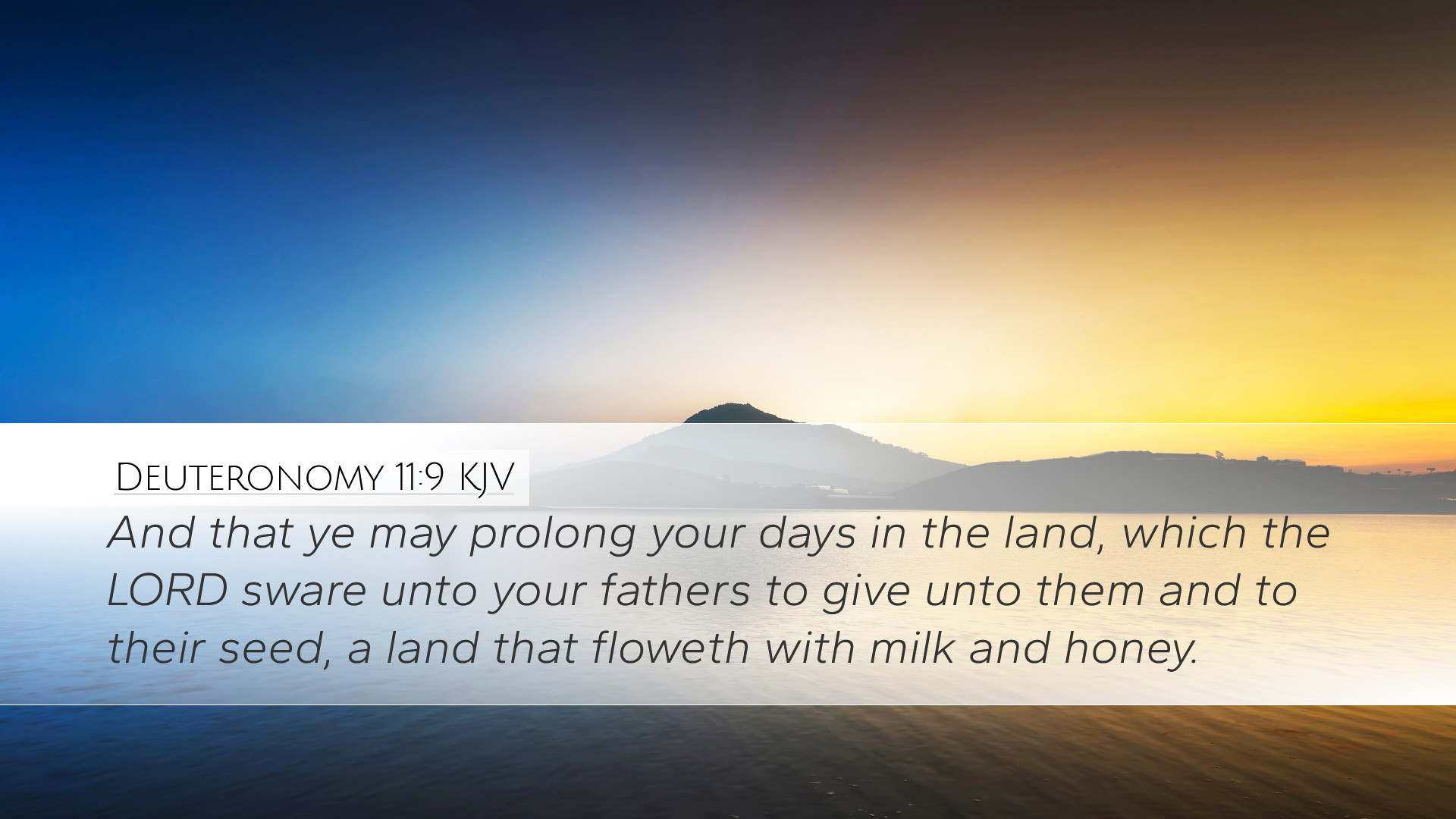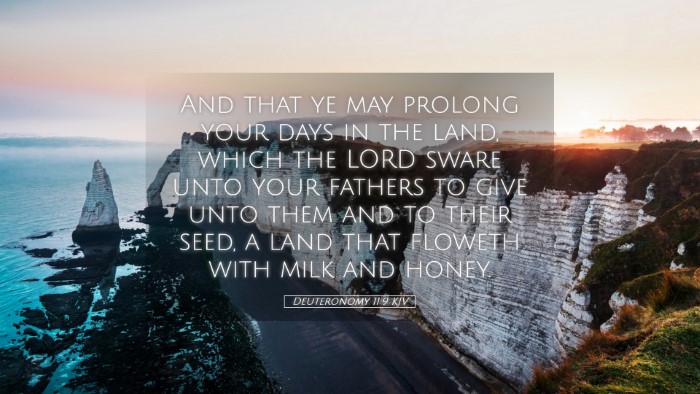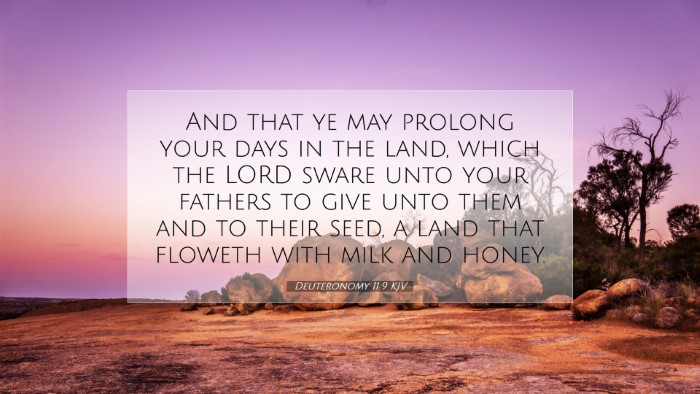Commentary on Deuteronomy 11:9
Deuteronomy 11:9: "And that ye may prolong your days in the land, which the Lord sware unto your fathers to give unto them and to their seed, a land that floweth with milk and honey."
Introduction
Deuteronomy serves as a vital covenant renewal document, wherein Moses addresses the Israelites before they enter the Promised Land.
This particular verse encapsulates the promise of longevity and prosperity in the land, contingent upon their adherence to God's commandments.
Thematic Overview
- Covenantal Faithfulness: The underlying theme is the necessity of faithfulness to God's covenant to enjoy the full blessings of the Promised Land.
- The Land of Milk and Honey: Symbolically, this phrase signifies abundance and divine provision.
- Judicial and Theological Context: This verse is situated within a broader narrative that emphasizes obedience as a prerequisite for experiencing God's promises.
Commentary Insights
1. Covenant and Promise
Matthew Henry, in his renowned commentary, emphasizes the conditional aspect of blessings tied to obedience.
He notes that the promise of prolonging one's days in the land is rooted in a covenant initiated by God with the patriarchs,
a promise not merely for individual Israelites but for their descendants, highlighting the communal aspect of God's covenant.
2. Prolonging Days in the Land
Albert Barnes expands on the notion of "prolonging days," suggesting that it implies not only longevity in physical life but also a life filled with purpose and peace.
This ties the concept of obedience to a holistic understanding of well-being both in the land and in relation to God's community.
3. The Land Flowing with Milk and Honey
Adam Clarke provides a deep exegesis on the description of the land. The metaphor of "milk and honey" signifies richness, fertility, and sustenance.
It serves to remind the Israelites that they are entering a land of divine abundance, contrasting their time in Egypt, which was marked by scarcity and oppression.
Exegesis and Theological Reflections
1. Legal and Ethical Implications
The covenantal stipulations surrounding this promise underscore the ethical imperative for the Israelites.
Their actions in response to God's commandments not only have personal ramifications but also collective ones that affect future generations.
2. Historical Context
The historical backdrop of Deuteronomy further enriches our understanding. The Israelites, having wandered in the wilderness, are on the cusp of entering a land that their forefathers were promised.
The admonition from Moses serves to re-establish the bond between God and His people, a bond that is maintained through obedience and vigilance.
Practical Application
- Faithfulness and Prosperity: The verse serves as a reminder to contemporary believers that faithfulness often leads to spiritual and communal prosperity.
- Generational Responsibility: There's an important lesson regarding the responsibility believers have toward future generations to uphold God's commandments.
- Understanding Abundance: In a world that often equates prosperity with material wealth, this verse challenges believers to find richness in their spiritual and communal life.
Conclusion
Deuteronomy 11:9 encapsulates a profound promise rooted in the faithfulness of God.
The blessings of longevity and prosperity in the land are contingent upon the Israelite's adherence to divine commandments, presenting a timeless message for all believers.
This verse challenges not only Israel but today's believers to remain steadfast, knowing that the promises of God are intricately linked to their responses to His call.


